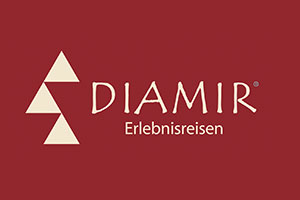Mali
Travel tips for Mali
Top 5 Experiences
Where history, culture, and magical desert unite. Highlights include:

Sahara and Nomadic groups
Mali’s connection to the Sahara Desert highlights the historical influence of nomadic groups like the Tuareg. The vast Sahara region has played a role in shaping the cultural and economic dynamics of Mali.

Timbuktu
The city served as a significant Islamic center in the 15th and 16th centuries and played a crucial role in the propagation of Islam.

Old town of Djenne
Inhabited since 250 B.C., Djenne was a key player in the trans-Saharan gold trade. With approximately 2,000 traditional houses, Djenne’s architecture and historical continuity underscore its importance in the economic and trade networks of the region.

Tomb of Askia
Constructed in 1495, this landmark stands as a testament to the power of the empire in controlling the trans Saharan gold trade led by Emperor Askia Mohamed.

Bamako Grand Marché
As one of the largest markets in Mali, it symbolizes the contemporary economic and cultural vibrancy of the capital city, Bamako, reflecting the diversity and dynamism of Mali’s present-day commerce and daily life.
Tourist infrastructure
While public transportation is limited in the capital city of Bamako, reliable taxis and minibuses are readily available in major urban centres, making it convenient to explore local attractions.
The country offers a variety of accommodations to cater to different tastes and budgets. From luxurious international hotel chains in urban hubs to charming lodges nestled in the heart of nature, travellers have plenty of options to choose from.
Climate and travel season
Mali is located in the outer tropics and can be divided into two climate zones:
Northern Region (Sahara): The milder temperatures of the winter months (November to February), ranging from 10 to 20°C, make this period more comfortable for travel in the northern Sahara. The extreme heat of the summer (March to October), with temperatures often exceeding 40°C, may be challenging for some visitors.
Southern Region (Transitional Tropics): The best time to visit the southern part of Mali, with its higher rainfall and lush landscapes, is during the dry and cooler season from November to February, when temperatures range from 20 to 25°C. This period allows for more pleasant conditions for outdoor activities and exploration. The hot season from March to May can be uncomfortably warm, while the rainy season from June to October may bring heavy rainfall.
Entry requirements
For entry requirements and visa information, please refer to the website of your respective embassy. Links provided below.
Impressions from Mali
(Click to enlarge)
Stories
International Hotel Chains Are Driving the Hotel Boom in Africa
Frankfurt, 03 April 2024 - The "Big 5" of global hotel chains - Accor, Hilton, IHG, Marriott International and Radisson ...
Internationale Hotelketten treiben den Hotelboom in Afrika voran
ReThinking Africa Initiative setzt sich für Investitionen in Afrikas Tourismuswirtschaft ein Frankfurt, 03. April 2024. Die „Big 5“ der globalen Hotelketten ...
Voice4Africa x ReThinking Africa News March
KLEBER Group x ReThinking Africa News March 2024 Content Foreword Investment in Africa's tourism industry as a driver for sustainable ...
Our partners in Mali
Visas, Entry, and Updates
Current accessibility
Corona precautionary measures
Status: 03.03.2022















